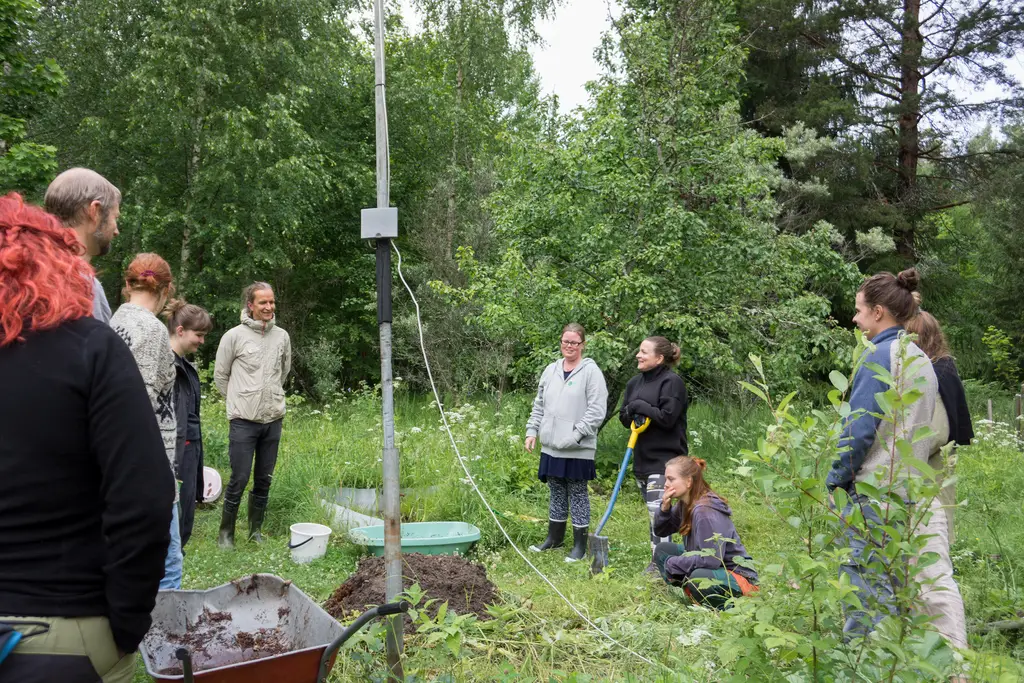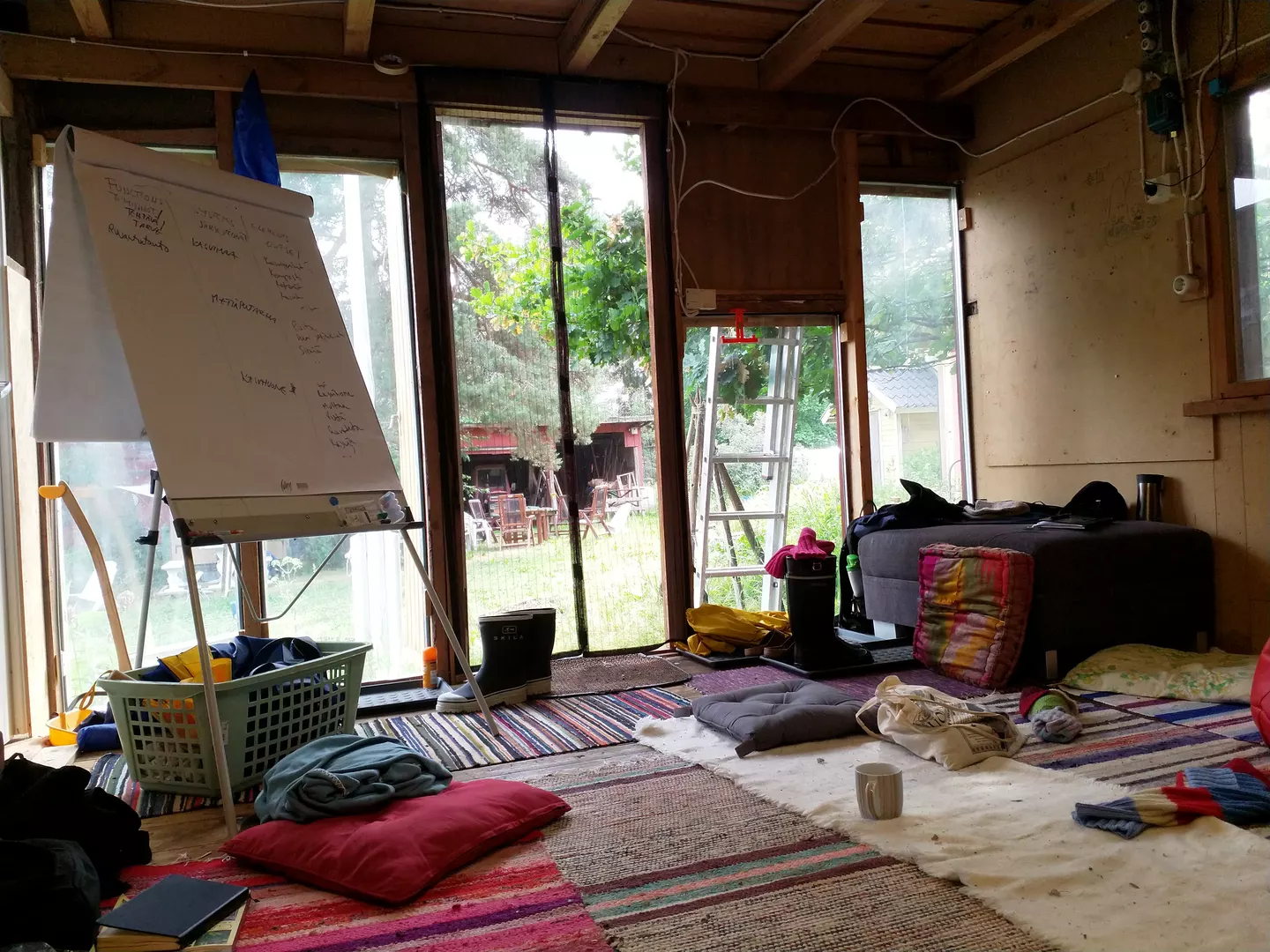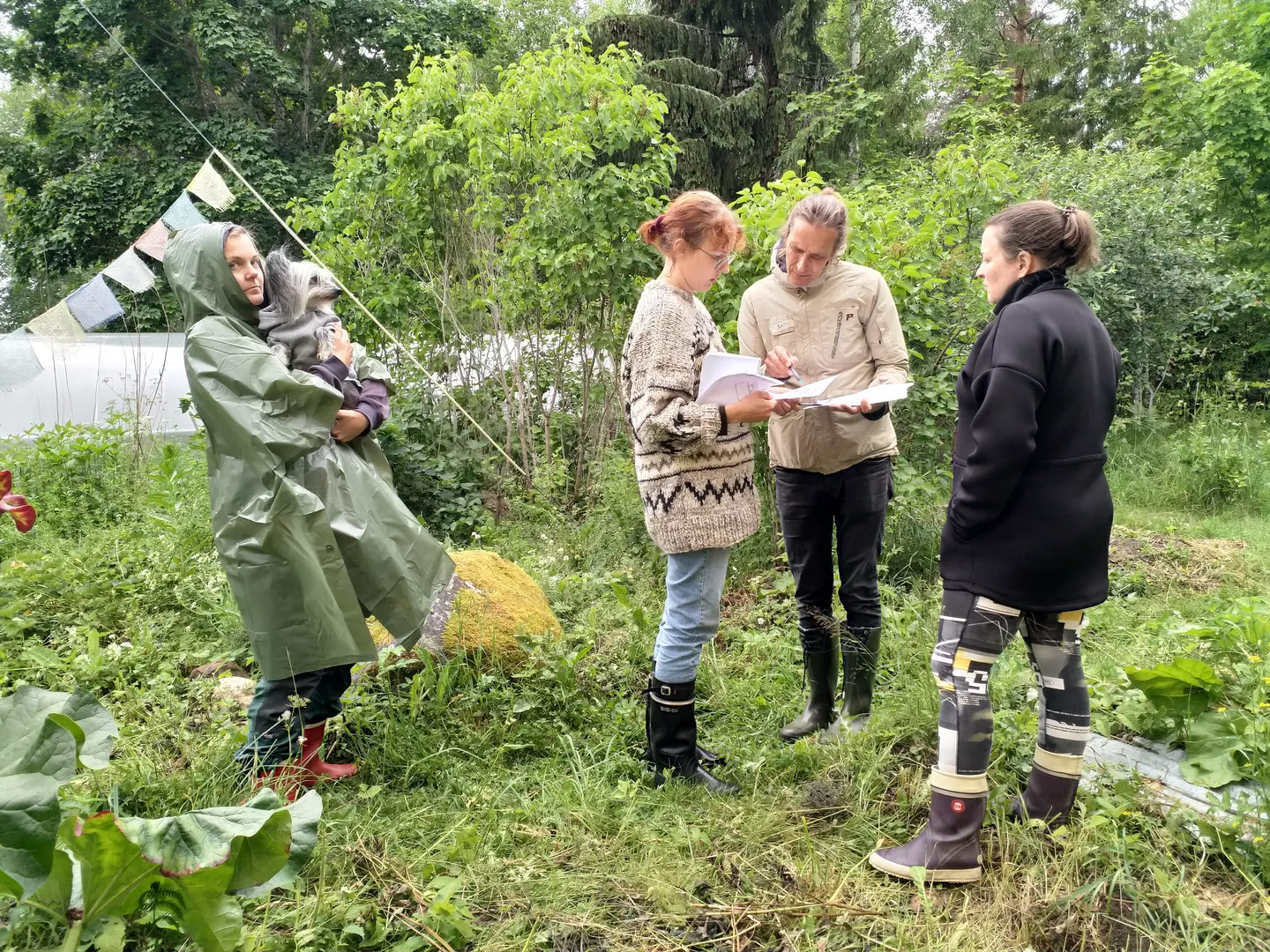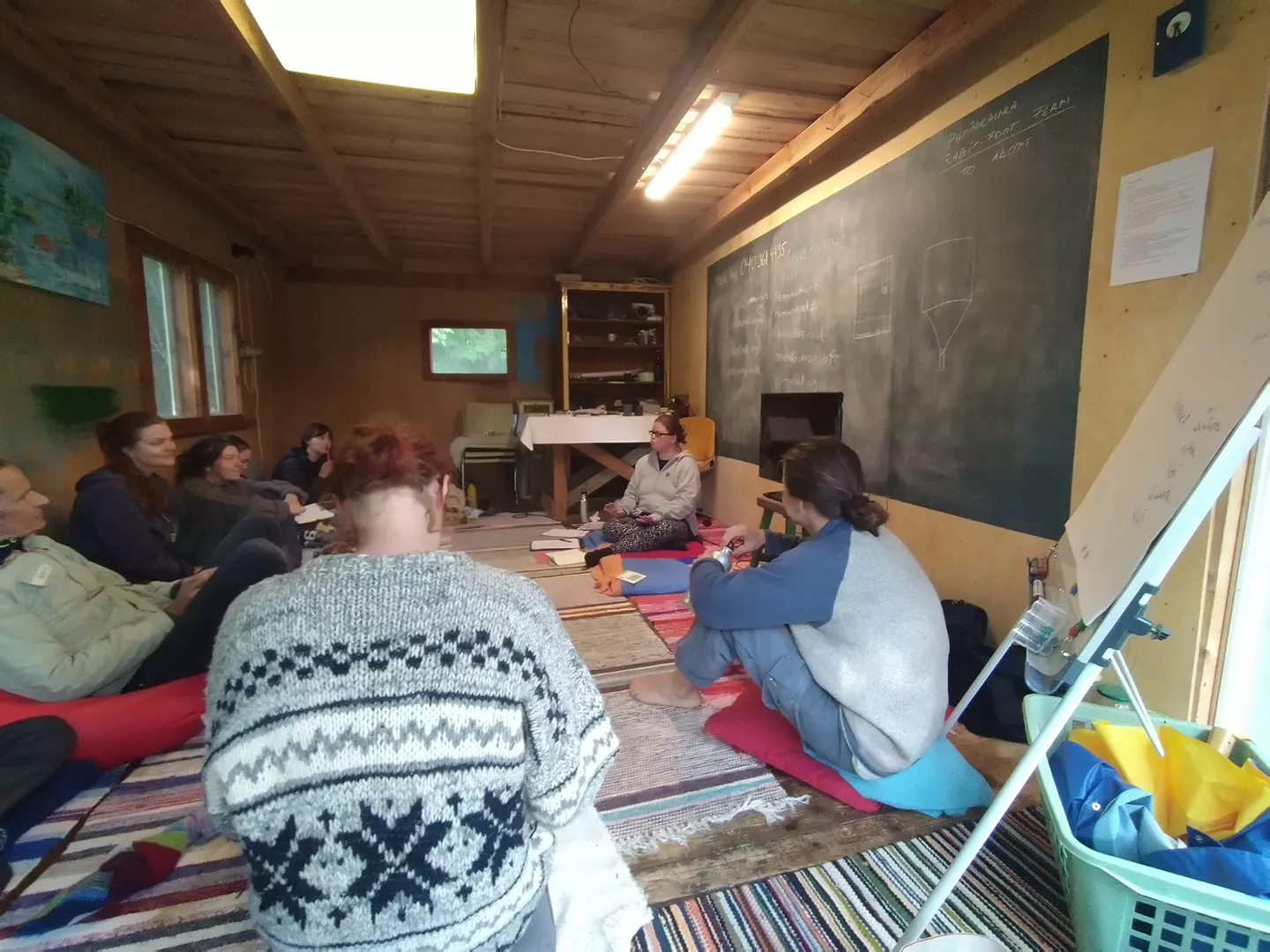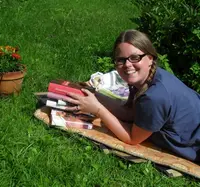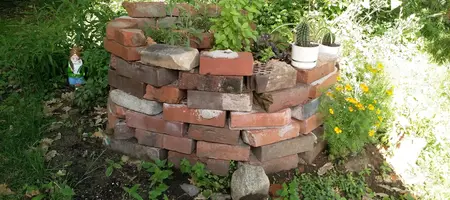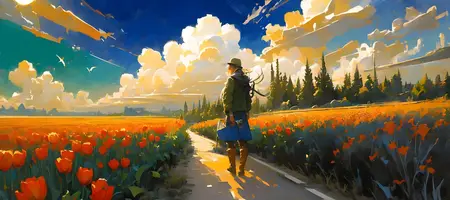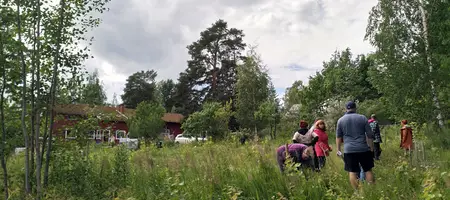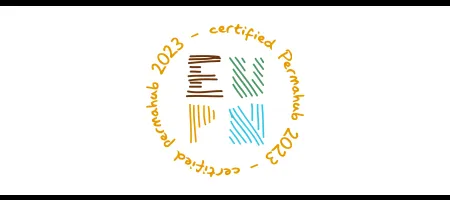On the first weekend of July 2023 Beyond Buckthorns was buzzing with excitement. Eleven awesome people got together to learn about permaculture in Finnish language, with me, Lumia as their teacher.
Even though it was raining cats and dogs, no one seemed to care, as the weekend was filled with inspiration, camaraderie, and a wealth of knowledge. Here's an insider's look at what went down over the weekend.
The seeds of change planted
The first day began with a warm welcome and hot coffee. The welcome circle provided an opportunity for participants to get to know each other and the Beyond Buckthorns premises.
This was followed by an enlightening session on the history, ethics, and principles of permaculture. Participants dived into the ethical foundation that makes permaculture more than just some organic gardening fad. It was an opportunity to understand how permaculture's ethics of care for the Earth, care for people, and fair share form the basis of a sustainable lifestyle.
Observing & learning
After a short break, participants went outside to see what they could observe in nature. Working in small groups enabled stacking functions and not only learning about nature, but also about each other.
After a delicious lunch we discussed why soil health matters and some solutions to healthy soil, like no-till vegetable gardens, mulch, soil types, and soil improvement. This was followed by an enlightening session on alternative energy sources by Dominik.
The day wound down with participants learning about zones and sectors. Before we knew it, it was time for the feedback session. The evening was spent cozily in the sauna!
Cultivating sustainable ideas
Day two started in a similar manner, remembering what we did yesterday and tuning into another full day of permaculture amazingness! By popular request, Dominik’s special biogas lecture kicked off the day, with feeding the dragon and all!
The day continued with discussions on social permaculture, and how one can integrate permaculture actions into daily life. It’s important to know that it’s not just about plants, but also about making life better for everyone. Indeed everyone, with or without access to land, can practice permaculture in their lives!
Hands-on gardening and designing
After the discussions, we put on our gardening gloves and went outside again to create a special raised bed. This hands-on exercise helped the participants understand layering and organic matter enrichment in soil building.
Post-lunch, the participants went into practical permaculture design with the help of some frameworks and tools. Three groups created some amazing designs for a Zone 2 plot at Beyond Buckthorns.
The final session was all about taking permaculture beyond the course. Participants shared resources and discussed their next steps. They were encouraged to share their knowledge and create ripple effects in their communities. The key is to get active, no matter how small the actions are!
The course concluded with feedback, thanks, and a hearty goodbye. Everyone left with smiles and brains full of new ideas – seeds of change.
Reflection
This weekend course was planned as a journey through the holistic world of permaculture, connecting people with nature and with each other. Based on the feedback, it did indeed succeed in being an inspiring blend of education, practical experience, and community building.
By blending theory with hands-on experiences, the course was built in a way that participants not only gained knowledge but also the confidence to apply it in practical terms.
The introduction to the ethics and principles of permaculture provided the philosophical grounding necessary for understanding the broader objectives of permaculture. This foundation is vital, as permaculture much more about mindset and values than it is about some specific techniques.
One of the noteworthy aspects was the incorporation of observation exercises. Observation is fundamental to permaculture – it’s about working with nature rather than imposing upon it. By teaching participants to observe and engage with their environment, we aimed to cultivate a sense of connection and respect for the natural world.
The social aspect, which is very important to me personally, was an integral part of the course. I wanted to encourage participants to think about how permaculture principles could be applied in their daily life and communities. The methodology is just too good to be limited only to gardens and yards!
Finally, the course didn’t just end with the close of the weekend; it aimed to empower participants to continue their permaculture journey at home. By providing them with resources, connections, and encouragement, I hope that the seeds planted over the weekend could flourish into lasting change.
In conclusion, looks like the course succeeded in not just educating but inspiring its participants, as was the plan. It taught permaculture as a holistic approach to living in harmony with our planet and each other. What it also taught is teaching, as this was my first course as a teacher! I want to kindly thank the participants of their support, and that they dared to embark on this little journey!
May the seeds planted on the course – the pak choy and the internal seeds – create ample harvest in the world!

